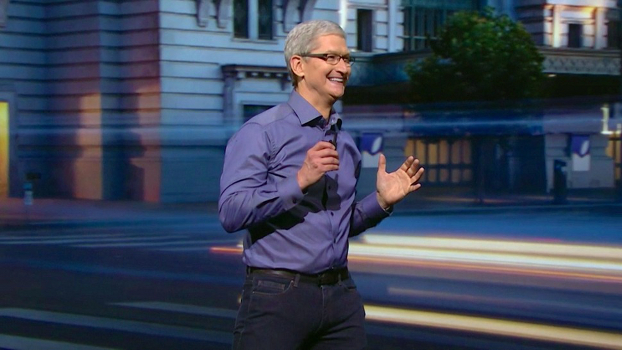 I must confess I wasn’t really surprised when I read that Bill Gates appeared to have come out in favour of the US government’s attempts to force Apple to write special software that would let the FBI access the iPhone of one of the San Bernadino attackers.
I must confess I wasn’t really surprised when I read that Bill Gates appeared to have come out in favour of the US government’s attempts to force Apple to write special software that would let the FBI access the iPhone of one of the San Bernadino attackers.
According to reports of his interview with the Financial Times, Gates took issue with Apple CEO Tim Cook’s attempts to characterise the government’s actions as forcing the tech giant to create a backdoor to the iPhone.
“Nobody is asking about a back door,” he told the FT. “This is a specific case where the government is asking for access to information. They are not asking for some general thing, they are asking for a particular case,” he said.
Gates went on to say that Apple had access to the information, but was “refusing to provide the access and the courts will tell them whether to provide the access or not… we shouldn’t call the access some special thing”.
He argued the US government’s request was “no different than should anybody ever have been able to tell the phone company to get information, bank records, should anybody be able to get at bank records. There’s no difference between information, the government has come asking for a specific set of information”.
In a letter to customers a week earlier, Cook stressed that “when the FBI has requested data that’s in our possession, we have provided it. Apple complies with valid subpoenas and search warrants, as we have in the San Bernardino case. We have also made Apple engineers available to advise the FBI, and we’ve offered our best ideas on a number of investigative options at their disposal.”
In this case, however, the FBI was trying to get Apple “to make a new version of the iPhone operating system, circumventing several important security features, and install it on an iPhone recovered during the investigation. In the wrong hands, this software – which does not exist today – would have the potential to unlock any iPhone in someone’s physical possession”.
He was adamant a version of iOS that bypassed security, whatever the FBI chose to call it, “would undeniably create a backdoor. And while the government may argue that its use would be limited to this case, there is no way to guarantee such control”.
One-time deal?
Cook dismissed the government’s reassurances it would only use the tool once to unlock one iPhone. “that’s simply not true. Once created, the technique could be used over and over again, on any number of devices. In the physical world, it would be the equivalent of a master key, capable of opening hundreds of millions of locks – from restaurants and banks to stores and homes. No reasonable person would find that acceptable”.
He accused the US government of “asking Apple to hack our own users and undermine decades of security advancements that protect our customers – including tens of millions of American citizens – from sophisticated hackers and cybercriminals”.
Cook’s suspicions of the US government’s intentions for the iOS backdoor are in marked contrast with Gates’ trust that the government would show admirable self restraint when armed with a tool that could unlock millions of iOS devices and choose not to use it.
Gates’ attempt to draw a distinction between access and information might be stronger if the two were mutually exclusive but they aren’t in this case. It’s purely because the FBI can’t access the information – because of its own actions in changing the password of the affected iPhone – that it is demanding Apple create a mechanism to enable it to do so. The issue is whether the mechanism it is asking for to access that information is disproportionate and open to misuse.
For example, if the government is successful in forcing Apple to write a backdoor, won’t the precedent set mean all it has to do to get legal backing to use the backdoor again is to change the password of any suspect’s iPhone or smash the screen?
If Apple writes this special software for the US government, why should it not do so for other governments around the world who are US “allies” in the war against terror, even if quite a number of them are repressive and undemocratic states that will use the software against their own people? What argument could it possibly advance to counter similar demands from those states? Even if that didn’t happen, what would prevent the US government sharing information gleaned from iPhones with other states? And would that be perfectly acceptable, so long as they were US approved repressive, undemocratic states?
And it’s not hard to imagine what a US ruled by ‘President Trump’ might do armed with such a tool.
At an individual level, there are going to be people who say ‘what does it matter, you don’t have anything to worry about unless you have something to hide’. Well, fair enough, but if we’re going to go for all out openness, let’s have governments completely open to public scrutiny as well. After all. if our governments aren’t doing anything wrong, they won’t have anything to hide from us either.








Subscribers 0
Fans 0
Followers 0
Followers